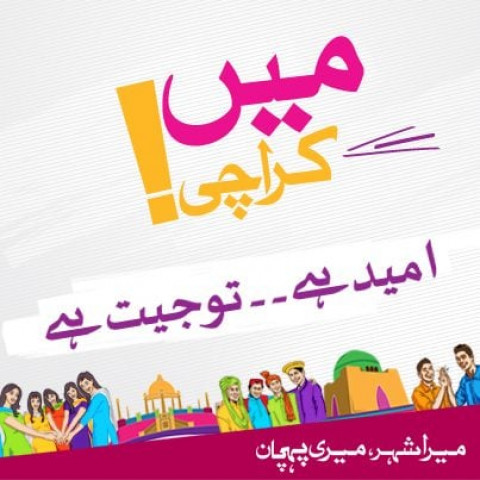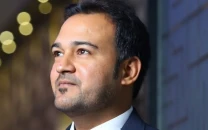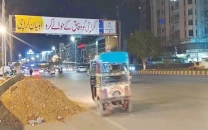Melting pot: Speakers recall how Karachi was home to all
‘I Am Karachi’ gathers experts who say proper planning can erase the city’s ethnic divides.

Speaking at the second session, titled ‘Demography, Governance and Urban Planning’, of the ‘I Am Karachi’ peace conference at the Regent Plaza hotel on Saturday, writer and researcher Gul Hassan Kalmati took the young audience back to the city’s early days, when 23 different languages were spoken in the city.
“It was a norm here to bury labourers who had no identity or no family to claim them,” he said. “They were buried here because they had been working here.”
Discussing the problems faced by the metropolis in terms of planning and implementation, urban planner Farhan Anwar highlighted Karachi’s position at the bottom of the Asian Green City Index. “Despite its contribution of up to 70 per cent of the national revenue and a high literacy rate of 65.3 per cent, the city remains unable to sustain itself,” he said, terming it “one of the most unfortunate cities of the world”.
Talking about communal segregation on the basis of ethnicities, Anwar asserted that the security barricades that have proliferated on the city’s streets were promoting the concept of gated communities. However, he shared the view of architect Arif Hasan, another panellist, that if focus was laid on improving the metropolis with strategic planning, the divide would disappear on its own.

Meanwhile, Hasan said that Google imaging showed that Karachi’s spread had increased tremendously from 1998 to 2011. “This is the only city where the number of people in a household has gone up not because of rising fertility but because of the shortage of space,” he added.
Moving on to transport, Hasan said that 62 per cent of women didn’t work or were forced to work unsuitable jobs because of transport issues. “In a survey done among youth at bus stops, 56 per cent of women said that they wanted to be able to drive motorcycles,” he said, explaining that this could transform the city’s mass transit system.
Karamat Ali, the executive director of the Pakistan Institute of Labour Education and Research, which organised the conference, praised the audience for raising questions on the panellists’ opinions. “Challenge everything instead of simply accepting what is being said at face value,” he added.
Published in The Express Tribune, December 21st, 2014.


















COMMENTS
Comments are moderated and generally will be posted if they are on-topic and not abusive.
For more information, please see our Comments FAQ